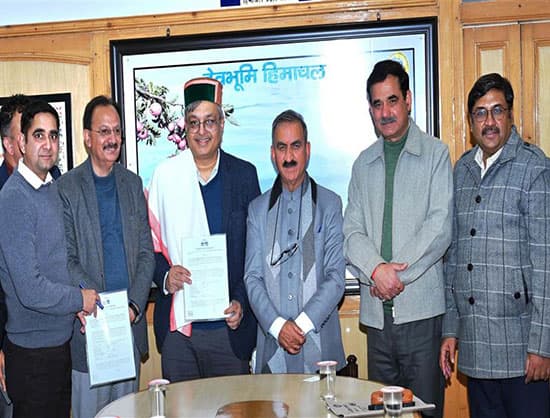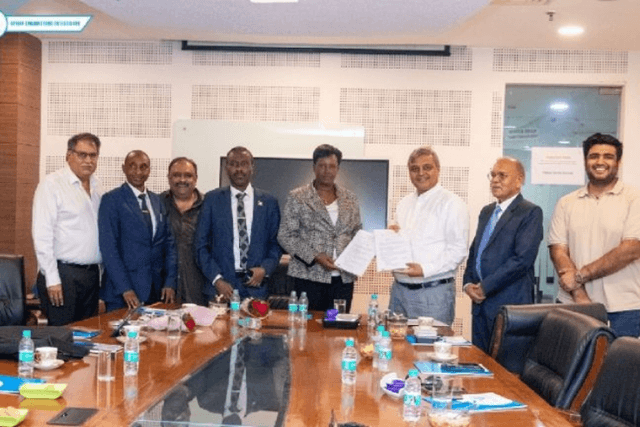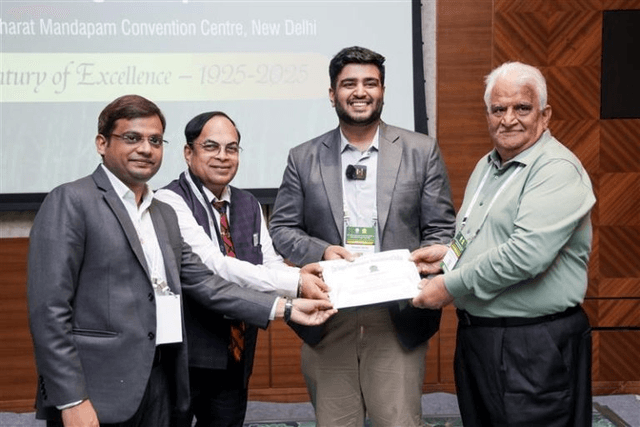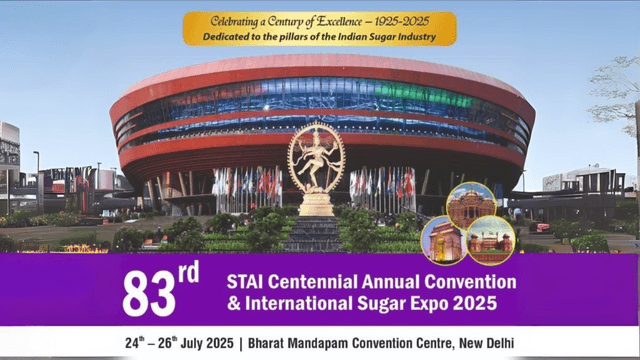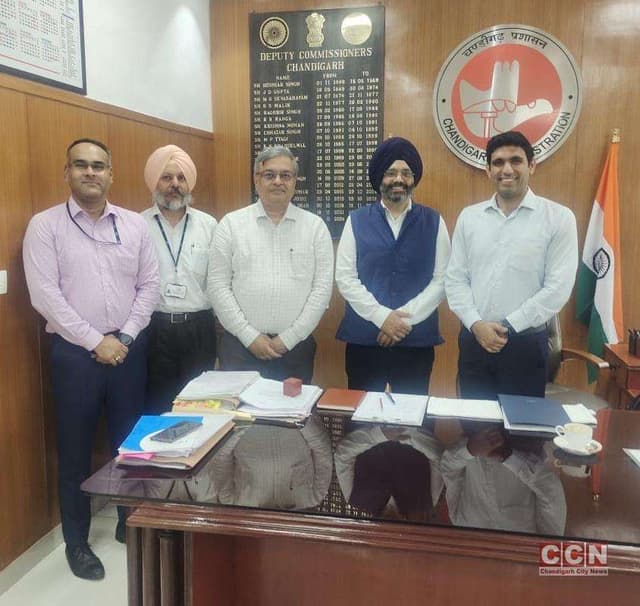
(SED/Bioenergy Times) Spray Engineering Devices Ltd. (SED), a clean-tech engineering firm specialising in thermal heat recovery and biomass utilisation, has unveiled a comprehensive roadmap aimed at transforming India’s sugar and ethanol sectors sustainably. The company showcased how dry biomass, including sugarcane bagasse and other agricultural residues, can be efficiently converted into ethanol using electricity-based gasification and circular processing technologies, achieving production at globally competitive prices.
With India reaching its 20% ethanol blending target five years ahead of the 2030 deadline and gearing up to implement E27 blending norms by August, SED’s roadmap aligns seamlessly with national objectives focused on energy security, sustainability, and carbon neutrality. Government data indicates that ethanol blending has saved over ₹1.36 lakh crore in foreign exchange over the past nine years and has resulted in payouts exceeding ₹3.1 lakh crore to farmers and distilleries, setting the stage for a ₹1 lakh crore ethanol-driven economy by 2027.
SED Managing Director Vivek Verma highlighted the vast potential of agricultural waste, noting, “India produces millions of tonnes of agricultural residue annually, much of which goes unused or is burnt. We’re creating pathways to convert this waste, whether sugarcane biomass, spent wash, or paddy husk—into clean energy sources like ethanol and SAF, while also generating benefits in water conservation, energy efficiency, and rural livelihoods. Producing ethanol from biomass at global benchmark costs can redefine rural bio-economics and contribute significantly to energy independence and climate goals.”
One of SED’s standout innovations is its electricity-powered gasification system that produces ethanol and Sustainable Aviation Fuel (SAF) from diverse feedstocks such as bagasse, farm residue, and municipal waste. The process achieves high energy output, between 4,000 and 5,000 kWh per tonne, with minimal tar generation, offering a cleaner, cost-effective alternative to conventional crude oil-based fuels.
The company also showcased its Smart Village Model, which includes decentralised jaggery processing through boilerless, MVR-driven systems. These units eliminate fossil fuel use, generate clean water, and support village-scale enterprises. The model integrates rooftop solar, clean cooking solutions, and zero liquid discharge (ZLD) water recycling, offering a scalable blueprint for net-zero rural development.
In the field of industrial water treatment, SED introduced its LTE® system powered by Mechanical Vapor Recompression (MVR), achieving near-total water recovery without steam or chemical usage. This technology, already in use at distilleries like Dalmia Bharat and Kenya’s Kibos Sugar, turns difficult distillery waste into reusable water for agriculture and other uses.
For the sugar industry, SED spotlighted two efficiency-boosting technologies: the honeycomb calandria batch pan, implemented at KM Sugar Mills, which enhances crystallisation and reduces steam usage by up to 15%; and a condensate-based juice heating system trialled at facilities including Uttam Sugar, RBNS, and Daurala, which offers 7–10% steam savings by replacing fresh steam with recycled condensate.
Recognising these innovations, Vivek Verma received the Excellence Award at the STAI Convention, while Dr. A.K. Nanda, SED President, was honoured with the Dr. P. J. Manohar Rao Gold Medal for co-product innovation. Additionally, SED was named Best Machinery Manufacturer (Sugar) at the Bharatiya Sugar national symposium in Kolhapur earlier this month.
With over 100 global patents, three advanced manufacturing facilities in India, and exports to more than 40 countries, SED serves diverse sectors including sugar, ethanol, jaggery, food and beverage, pharmaceuticals, green chemicals, and automotive. The recent presentation of five technical papers to sugar industry professionals underscores the company’s commitment to research and its role in driving India’s clean energy and bioeconomy ambitions forward. READ MORE
Spray Engineering Devices Ltd. (SED), a clean tech engineering company specialising in thermal heat recycling and biomass valorisation, unveiled a forward-looking roadmap for sustainable transformation across India’s sugar and ethanol industries. The company demonstrated how dry biomass, such as sugarcane bagasse and agricultural waste, can be converted into ethanol at globally competitive costs through electricity-driven gasification and circular processing systems.
At a time when India has achieved 20 percent ethanol blending in petrol five years ahead of its original 2030 target, and as the country prepares to roll out E27 blending norms by August this year, SED
L’s clean tech roadmap aligns strongly with the national drive for energy security, circularity, and carbon neutrality. According to recent government data, India saved over ₹1.36 lakh crore in foreign exchange through ethanol blending in the last nine years and disbursed over ₹3.1 lakh crore to farmers and distilleries, indicating a robust foundation for a ₹1 lakh crore ethanol economy by 2027.
Mr. Vivek Verma, Managing Director, SED, said, “India generates millions of tonnes of agricultural residue every year, much of which is either burned or wasted. What we’re enabling is a path where that same waste – whether sugarcane-based biomass, spent wash, or paddy husk – can be turned into clean fuels like ethanol and SAF, while creating water, energy, and livelihood benefits. Ethanol production from biomass at global competitive cost can help reshape the bio-economics of rural development, energy security, and climate action.”
A highlight of SED’s portfolio is its electricity-driven gasification process for producing ethanol and Sustainable Aviation Fuel (SAF). Capable of converting a variety of feedstocks, including bagasse, agricultural residue, and municipal solid waste, the system achieves high energy yields of 4,000 to 5,000 kilowatt-hours per tonne and operates with minimal tar formation, offering a cleaner and more economical alternative to crude-based fuels.
Also featured was the Smart Village Model, a decentralised jaggery processing framework powered by boilerless, MVR-based plants. These units eliminate fossil fuel use, generate clean water as a by-product, and support rural livelihoods through village-scale micro-enterprises. The system integrates rooftop solar power, clean cooking infrastructure, and zero liquid discharge (ZLD) based water reuse, presenting a replicable model for net zero rural development.
In industrial water treatment, SED presented its LTE® system powered by MVR, designed to deliver nearly 100 percent clean water recovery without the use of steam or chemicals. Already deployed at distilleries such as Dalmia Bharat and Kibos Sugar in Kenya, the solution transforms one of the most challenging distillery by-products into a reusable water source for agriculture or in-process applications.
For sugar processing units, SED highlighted two proven energy-saving technologies. The honeycomb calandria batch pan, already operational at KM Sugar Mills, improves crystallisation efficiency and reduces steam consumption by up to 15 percent. In addition, a condensate-based juice heating system, tested at mills including Uttam Sugar, RBNS, and Daurala, delivers 7 to 10 percent steam savings by replacing fresh steam with recovered condensate.
In recognition of its contributions to innovation, Mr. Vivek Verma received the Excellence Award at the STAI Convention, while Dr. A. K. Nanda, President of SED, was awarded the Dr. P. J. Manohar Rao Gold Medal for innovation in co-products. Earlier this month, the company also received the Best Machinery Manufacturing (Sugar) Award at the national level by Bharatiya Sugar during its annual symposium in Kolhapur.
With over 100 global patents, three state-of-the-art manufacturing units in India, and exports to more than 40 countries, SED’s solutions today serve sectors including sugar, ethanol, jaggery, food and beverage, pharmaceuticals, green chemicals, and automotive. Its recent presentation of five technical papers to the wider fraternity of sugar technologists further reinforces SED’s role as a research-driven partner advancing India’s clean energy and bioeconomy goals.
About Spray Engineering Devices Ltd. (SED):
Established in 1992, SED emerged as one of the fastest growing technologies driven company, striving to provide world class integrated energy saving equipment and solutions for water, biofuel, jaggery and sugar industries across 40+ countries. It specializes in thermal waste heat recovery, evaporation, crystallisation, heat exchange, condensation systems. With in-house R&D recognition by Government of India, SED has more than 100 IP protection globally. SED has 3 hi-tech industrial manufacturing units located at Baddi (H.P.) India. The company boots its production, equipped with most sophisticated and modernized equipment fabricating CNC machines and various testing machines procured from world class manufacturers, facilitating the fabrication capability to the outmost accuracy and quality that allow SED to provide flexible and cost-effective services to its customers.

